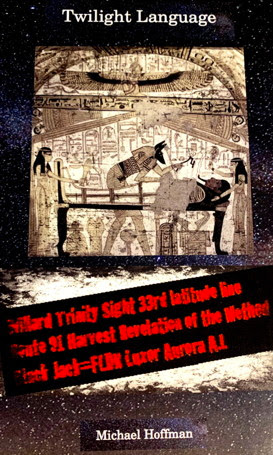Donald Trump:
The goy who still doesn't measure up
__________________
Trump and the Holocaust Remembrance: A Second Chance
By the Editorial Board of The New York Times
January 26, 2018, p. A22
Michael Hoffman’s Analysis: Mr. Trump has been a better toady of counterfeit-Israel than Mr. Obama, yet in the following command issued by the High Priests in New York, we observe the never-satisfied element inherent in the supremacist Talmudic mentality: the goy is always a defective creature from whom perpetual “atonement” is required. Anything short of golem-like robotic compliance is met with supercilious scolding and further “moral tests” issued by the holier-than-thou neo-Pharisees.
The goy can find “redemption” only in genuflecting under the spell of the magic wand of Holocaust benediction. The following editorial, “Trump and the Holocaust Remembrance: A Second Chance,” reeks of vanity and moral superiority, of which the New York Times is probably unconscious, in that it is so habitual. There is not a thought given to the necessity of special commemoration of all of the other holocausts of World War II—the civilians of every German city incinerated by the Allies, the Russian civilians of Stalingrad massacred by the Nazis, the Poles butchered by the Soviets at Katyn, and the Japanese civilians—of Tokyo (massacred by firebombing) and Hiroshima and Nagasaki (holocausted by atomic bombing).
It is a sorcerer’s feat out of the Zohar's grimoire that all these holocausts are reduced to a tiny footnote in the sacred liturgy of the one and only Holocaust worth commemorating, that of planet earth’s one and only Holy People.
Michael Hoffman is the author of The Great Holocaust Trial, which, at one time or another has been banned by the Israeli, German and Canadian governments.
Saturday is International Holocaust Remembrance Day. For President Trump, it is a shot at redemption. He failed a moral test on the same occasion a year ago when he issued a message that strangely left out any specific reference to the six million Jews murdered in the Nazis’ industrialized genocide. The White House cast the omission as somehow an “inclusive” approach because, it said, Roma, gays, the disabled and others were also victims. But Jews were unique targets. Failing to mention them was as bizarre as it would be to write a history of slavery and ignore the ordeal of Africans brought to America in chains.
It was an example of Mr. Trump’s complex, at times disturbing, instincts in regard to Jews.
On one hand, his elder daughter is a convert to Judaism, married to an observant Jew. His years in New York real estate involved frequent dealings with Jewish counterparts. He has thrilled many American Jews by recognizing Jerusalem as Israel’s capital (though he’s displeased many more of them, who fear that this will impede the search for Middle East peace). At a ceremony on Capitol Hill in April, he spoke forcefully about the Holocaust as he pledged “never again.”
But there’s always another hand with Mr. Trump, and it can be unsightly.
After a march that included neo-Nazis in Charlottesville, Va., last summer, the president said that there were “very fine people” among them. No, there weren’t. There are no very fine Nazis, neo or otherwise.
He has passed along tweets from unabashedly anti-Semitic accounts, and has been slow to denounce assaults, vandalism and other Jew-hating acts, which the Anti-Defamation League says have risen sharply. In the first nine months of 2017, the latest period with available numbers, the league reported there were 1,299 such episodes, an increase of 67 percent over the 779 recorded in the same stretch of 2016.
As with other minorities, Mr. Trump is not above indulging in glib, often hurtful stereotypes, like the age-old trope of greedy Jews. There was his campaign image of the six-pointed star and cash cascading down on Hillary Clinton, and his assertion that Mrs. Clinton “meets in secret with international banks to plot the destruction of U.S. sovereignty.” And there was this to Jewish Republican donors: “Is there anybody that doesn’t renegotiate deals in this room? This room negotiates them —Perhaps more than any room I’ve ever spoken to.”
Unlike previous presidents, Mr. Trump couldn’t be bothered on a July visit to Warsaw to stop at the site of that city’s notorious Jewish ghetto. In May he visited the Yad Vashem memorial to the Holocaust in Jerusalem, but offended some people by zipping through it far too quickly to absorb its poignancy and power. Then he signed the guest book with a discordantly, but typically, self-referential entry: “It is a great honor to be here with all of my friends — so amazing + will never forget!”
“I am the least anti-Semitic person that you’ve ever seen in your entire life,” Mr. Trump has said with characteristic grandiosity. That is of course a claim beyond measurement. No one can know what is in his heart. But we do know what is in his public statements — and also what is not, like his expunging of Hitler’s greatest victims from last January’s Holocaust message. He can make Saturday his day of atonement. — New York Times
_____________________
Operation Sabotage the Memo
What are Adam Schiff, the Justice Department and the FBI trying to hide?
"The slippery shadow in all this is Deputy Attorney General Rod Rosenstein."
By Kimberley A. Strassel, Wall Street Journal
Rep. Adam Schiff has many talents, though few compare to his ability to function as a human barometer of Democratic panic. The greater the level of Schiff hot, pressured air, the more trouble the party knows it’s in.
Mr. Schiff’s millibars have been popping ever since the Permanent Select Committee on Intelligence, on which he is ranking Democrat, last week voted to make a classified GOP memo about FBI election year abuses available to every House member. Mr. Schiff has spit and spun and apoplectically accused his Republican colleagues of everything short of treason. The memo, he insists, is “profoundly misleading,” not to mention “distorted” and “political,” and an attack on the Federal Bureau of Investigation. He initially tried to block his colleagues from reading it. Having failed, he’s now arguing Americans can know the full story only if they see the underlying classified documents.
This is highly convenient, given the Justice Department retains those documents and is as eager to make them public as a fox is to abandon the henhouse. Intelligence Chairman Devin Nunes had to threaten a contempt citation simply to get permission for his committee to gain access, and even then investigators had to leave Capitol Hill to view them, and were allowed only to take notes. Mr. Nunes has no authority to declassify them. The best he can do in his continuing transparency efforts is to summarize their contents. Only in Schiff land is sunshine suddenly a pollutant.
The Schiff pressure gauge is outmatched only by the Justice Department and the FBI, which are now mobilizing their big guns to squelch the truth. That included a Wednesday Justice Department letter to Mr. Nunes—written by Assistant Attorney General Stephen Boyd, designed as a memo to the media, copied to its allies in Washington, and immediately leaked to the public. And the department wonders why anyone doubts the integrity of all its hardworking professionals.
Mr. Boyd gets in his cheap shots, for instance slamming Mr. Nunes for moving to release a memo based on documents that Mr. Nunes hasn’t even “seen.” He apparently thinks Rep. Trey Gowdy —the experienced former federal prosecutor Mr. Nunes asked to conduct the review of those docs—isn’t qualified to judge questions of national security. He hyperventilates that it would be “reckless” for the committee to make its memo public without first letting the Justice Department review it and “advise [the committee] of the risk of harm to national security.” Put another way, it is Mr. Boyd’s position that the Justice Department gets to provide oversight of Congress. The Constitution has it the other way around.
The bigger, swampier game here is to rally media pressure, and to mau-mau Mr. Nunes into giving the department a veto over the memo’s release. Ask Sen. Chuck Grassley how that goes. Mr. Grassley, chairman of the Judiciary Committee, recently sent a referral to the department for a criminal probe into dossier author Christopher Steele. He then in good faith asked the department its views on an unclassified portion of that referral that he wants to make public. The department invented a classified reason to block public release, and has refused to budge for weeks.
The Boyd letter is also a first step toward a bigger prize: President Trump. Under House rules, a majority of the Intelligence Committee can vote to declassify the memo. Mr. Trump then has up to five days to object to its release. If he doesn’t object, the memo goes public. If he does, a majority of the House would have to vote to override him.
The shrieks of reckless harm and national security are designed to pressure Mr. Trump to object. And wait for it: In coming days the Justice Department’s protectors will gin up a separate, desperate claim that Mr. Trump will somehow be “interfering” in special counsel Robert Mueller’s probe unless he objects to the release. According to this view, it is Mr. Trump’s obligation not just to sit by while the media and the Mueller team concoct their narrative, but to block any evidence that might undercut it.
The slippery shadow in all this is Deputy Attorney General Rod Rosenstein. Attorney General Jeff Sessions’ recusal put Mr. Rosenstein in charge of digging into the actions—right or wrong—of the Justice Department and FBI in 2016. Instead of taking up that challenge, he named an old and dear friend of the FBI as special counsel, and directed him only to look at Mr. Trump. And Mr. Rosenstein appears to have signed up as an active participant in the effort to thwart any congressional investigation of the other side of the issue.
A department head interested in truth doesn’t flout subpoenas. He doesn’t do a runaround of the Intelligence Committee and try to sucker House Speaker Paul Ryan into aiding a stonewall by asking him to intervene just before a deadline and block a contempt citation. He doesn’t sit on the knowledge of outrageous texts between FBI agents and force Congress to drag it out of him. And he doesn’t sign off on the leaks and character assassination in which his department daily engages to undermine Congress.
Read more at WSJ.com
_________________________















